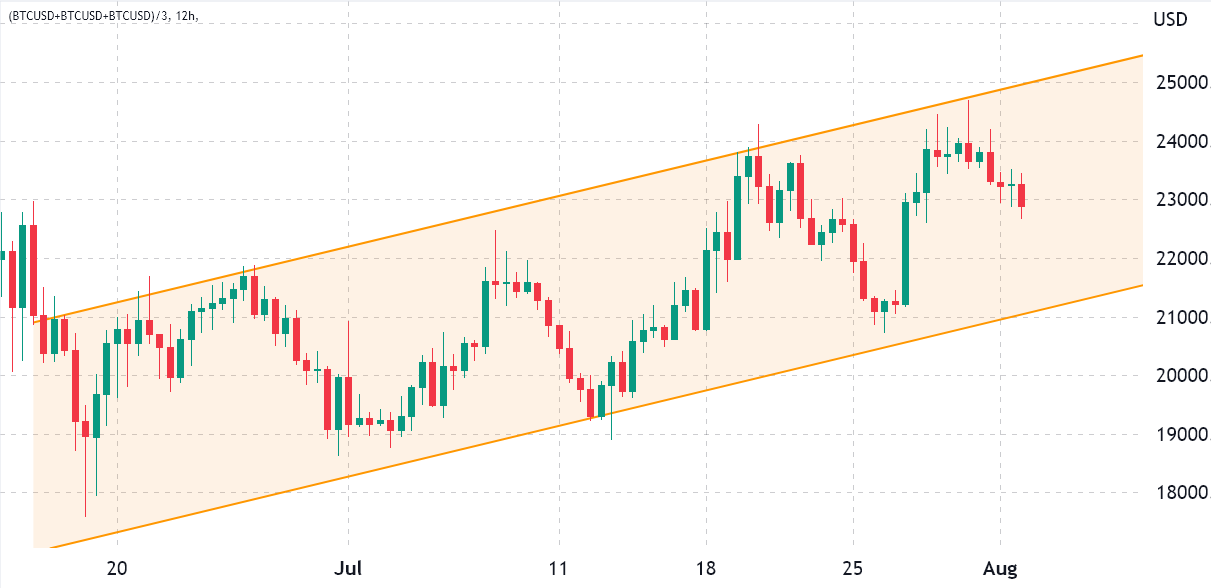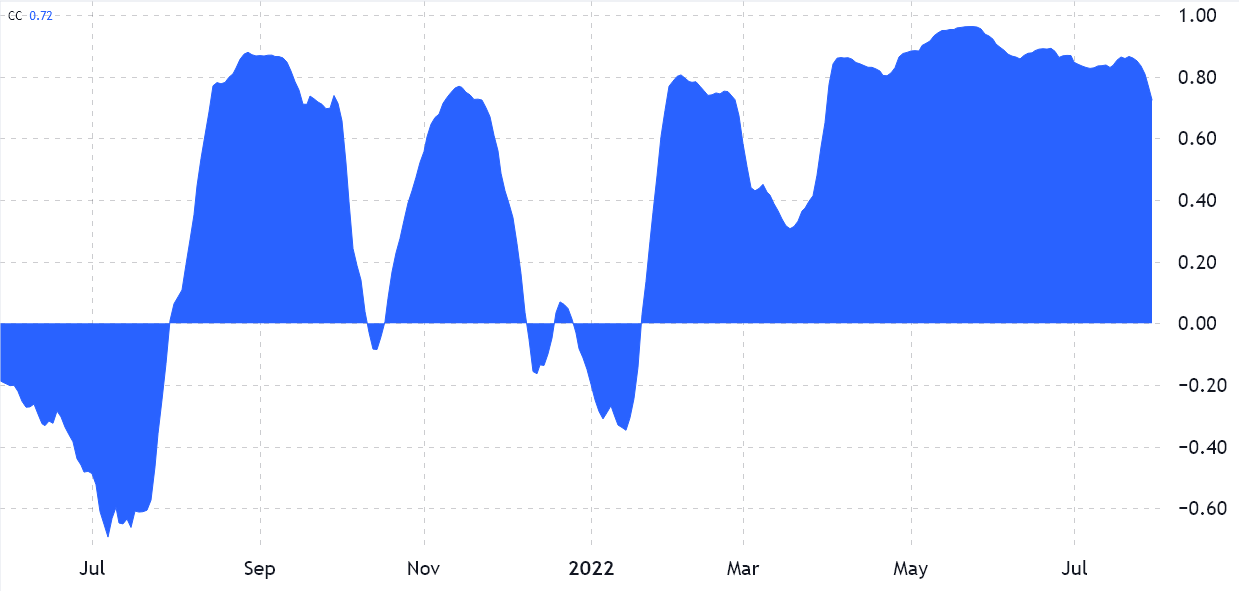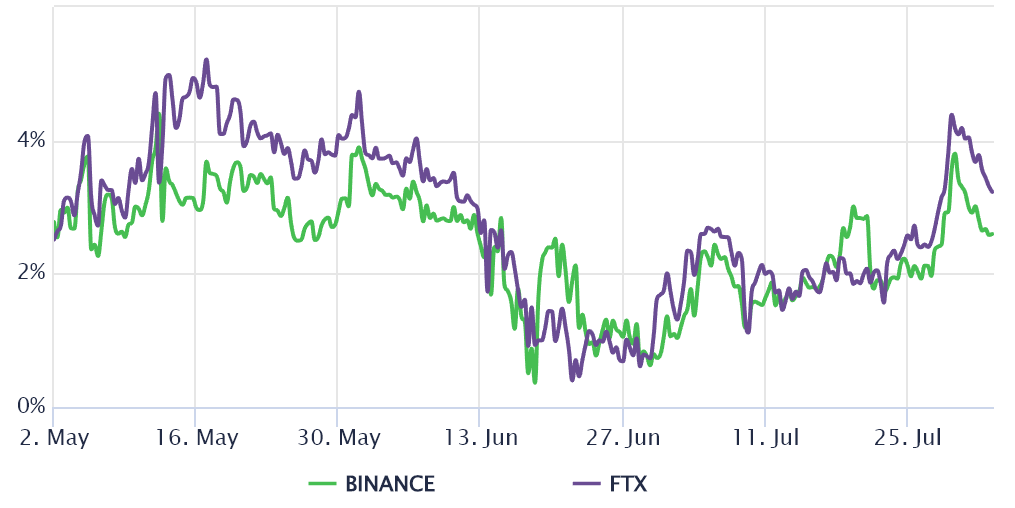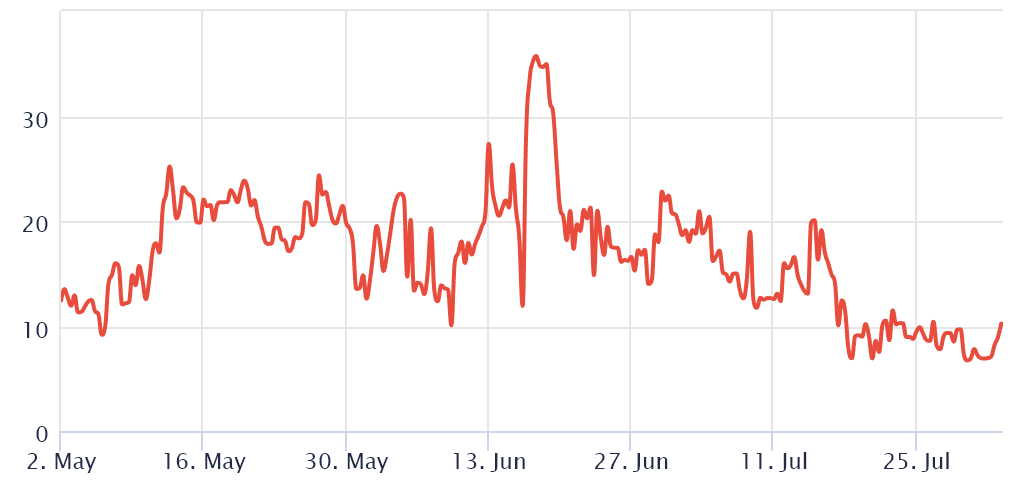Bitcoin (BTC) has been trending up since mid-July, although the current ascending channel formation holds $21,100 support. This pattern has been holding for 45 days and could potentially drive BTC towards $26,000 by late August.

According to Bitcoin derivatives data, investors are pricing higher odds of a downturn, but recent improvements in global economic perspective might take the bears by surprise.
The correlation to traditional assets is the main source of investors’ distrust, especially when pricing in recession risks and tensions between the United States and China ahead of House Speaker Nancy Pelosi’s visit to Taiwan. According to CNBC, Chinese officials threatened to take action if Pelosi moved forward.
The U.S. Federal Reserve’s recent interest rate hikes to curb inflation brought further uncertainty for risk assets, limiting crypto price recovery. Investors are betting on a “soft landing,” meaning the central bank will be able to gradually revoke its stimulus activities without causing significant unemployment or recession.
The correlation metric ranges from a negative 1, meaning select markets move in opposite directions, to a positive 1, which reflects a perfect and symmetrical movement. A disparity or a lack of relationship between the two assets would be represented by 0.

As displayed above, the S&P 500 and Bitcoin 40-day correlation currently stands at 0.72, which has been the norm for the past four months.
On-chain analysis corroborates longer-term bear market
Blockchain analytics firm Glassnode’s “The Week On Chain” report from Aug. 1 highlighted Bitcoin’s weak transaction and the demand for block space resembling the 2018–19 bear market. The analysis suggests a trend-breaking pattern would be required to signal new investor intake:
“Active Addresses [14 days moving average] breaking above 950k would signal an uptick in on-chain activity, suggesting potential market strength and demand recovery.”
While blockchain metrics and flows are important, traders should also track how whales and market markers are positioned in the futures and options markets.
Bitcoin derivatives metrics show no signs of “fear” from pro traders
Retail traders usually avoid monthly futures due to their fixed settlement date and price difference from spot markets. On the other hand, arbitrage desks and professional traders opt for monthly contracts due to the lack of a fluctuating funding rate.
These fixed-month contracts usually trade at a slight premium to regular spot markets as sellers demand more money to withhold settlement longer. Technically known as “contango,” this situation is not exclusive to crypto markets.

In healthy markets, futures should trade at a 4% to 8% annualized premium, enough to compensate for the risks plus the cost of capital. However, according to the above data, Bitcoin’s futures premium has been below 4% since June 1. The reading is not particularly concerning given that BTC is down 52% year-to-date.
To exclude externalities specific to the futures instrument, traders must also analyze Bitcoin options markets. For instance, the 25% delta skew signals when Bitcoin whales and market makers are overcharging for upside or downside protection.
If option investors fear a Bitcoin price crash, the skew indicator would move above 12%. On the other hand, generalized excitement reflects a negative 12% skew.

The skew indicator has been below 12% since July 17, considered a neutral area. As a result, options traders are pricing similar risks for both bullish and bearish options. Not even the retest of the $20,750 support on July 26 was enough to instill “fear” in derivatives traders.
Bitcoin derivatives metrics remain neutral despite the rally toward $24,500 on July 30, suggesting that professional traders are not confident in a sustainable uptrend. Thus, data shows that an unexpected move above $25,000 would take professional traders by surprise. Taking a bullish bet might seem contrarian right now, but simultaneously, it creates an interesting risk-reward situation.
The views and opinions expressed here are solely those of the author and do not necessarily reflect the views of Valideapp. Every investment and trading move involves risk. You should conduct your own research when making a decision



